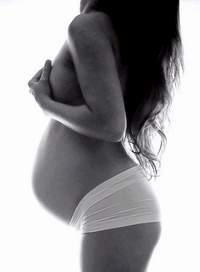Alternative therapies reduce woman's chances for pregnancy
Alternative therapies such as reflexology and herbal supplements may reduce a woman's chance of getting pregnant, experts said Wednesday.

Research presented Wednesday at a Lyon meeting of the European Society of Human Reproduction and Embryology examined the impact of alternative therapies on women receiving in-vitro fertilization over a year.
Of 800 Danish women followed for the study, 261 tried treatments including reflexology, herbal supplements, aromatherapy, osteopathy and acupuncture.
The women using such treatments overall were 20 percent less likely to get pregnant than those who did not, according to researchers Dr. Jacky Boivin, of Cardiff University, and Dr. Lone Schmidt, from the University of Copenhagen.
"Doctors tend to think that these kinds of therapies are benign," said Boivin, who was surprised by the results. "But maybe they're not as benign as we think they are."
While the study does not provide any definitive answers about the value of alternative therapies, experts say it raises an important issue.
"We cannot start with the assumption that these therapies do no harm," said Dr. Andrea Braverman, director of psychological and complementary care at Reproductive Medicine Associates in New Jersey. Braverman was not connected to Boivin's study and is currently running a study to see if acupuncture helps or hinders pregnancy.
To date, no large-scale, randomized studies have been done looking at the value of alternative remedies.
In the Danish study, the women most likely to try complementary therapies also tended to have a worse prognosis. But even after adjusting for this difference, Boivin said, a discrepancy in the pregnancy rates remained. All of the women in the study were from a similar socio-economic background.
"There still seems to be an association between the use of complementary therapies and the reduced chances for pregnancy," Boivin said.
Because Boivin and Schmidt were unable to disentangle the various alternative therapies tried - they measured all therapies tried, not individually - they could not explain why such treatments might decrease the pregnancy rate. "We have no idea why pressing on your feet could be bad for getting pregnant," Boivin said.
Some experts worried the study might be skewed. "The important question is whether the chicken or the egg came first," said Edzard Ernst, professor of complementary medicine at Exeter University, who was not connected to Boivin's work.
"Those women who are more prone to stress and have more health problems are more likely to try complementary medicine," he said. "So complementary medicine could only be a marker, and not the cause, of stress or lower success rates." Ernst said similar results had been found in looking at the use of alternative therapies in cancer patients.
Experts agreed the lack of data remained a problem. "Anything could have a positive or negative effect," Braverman said. "But without the evidence, we have to be cautious."
Subscribe to Pravda.Ru Telegram channel, Facebook, RSS!

